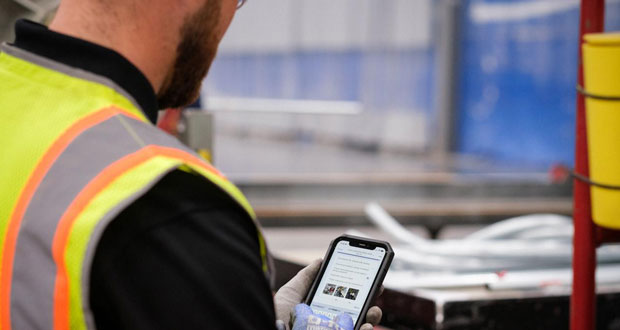The findings were released to coincide with World Day for Safety and Health at Work on 28 April 2025. This year, the United Nations’ International Labour Organisation is putting the spotlight on AI and digitalisation in the workplace.
When it comes to tech on the frontline, workers are optimistic. Many believe AI will make work safer by predicting and preventing accidents (34 per cent), spotting risks that humans might miss (32 per cent), and taking on dangerous tasks in their place (31 per cent).
Rather than feeling scared or anxious about AI and automation, workers are most likely to say they feel “curious” and “hopeful” about these new technologies in the workplace.
The positive findings will reassure businesses that are looking to accelerate their AI and automation plans in future years, according to workplace operations and improvement platform SafetyCulture, which commissioned the wide-ranging study.
Research was conducted in the construction, hospitality, logistics, manufacturing and retail sectors, with frontline workers defined as people who must physically show up for their job.
Alex Brooks-Sykes, SafetyCulture’s lead for UK & Ireland, said: “There’s a lot for health and safety leaders to feel positive about here.
“They may assume the worst about workers’ attitudes to AI and automation being introduced in the workplace – but our findings show staff are optimistic about the safety benefits in particular.
“It’s also reassuring to see that twice as many workers trust management to make the right decisions on AI adoption, than don’t. When introducing new technology, particularly when there’s uncertainty about its impact, being open and transparent is key, and communication is an area workers say their employer can improve on.”
While potential job losses and redundancies are frontline workers’ top concern (55 per cent), they also have concerns about machines making decisions without human oversight (38 per cent). Crucially, the majority of frontline workers (58 per cent) trust AI to provide insights or instructions but not to make decisions. More than one-third are also worried about unreliable or ‘glitchy’ technology actually creating hazards (35 per cent).
Brooks-Sykes added: “Among the general positivity, there are some really actionable issues that workers raise. Many say they’d feel more comfortable about AI in the workplace with more training to use new technology. This is essential to dispel lingering reservations and showcase how workers can maximise its benefits. Reliability is another non-negotiable for workers who want tech that is going to deliver what it promises.”
Changes in the FM sector are fast-paced. Whether it’s net zero targets, hybrid working, new regulations or the huge potential of automation, there’s more pressure than ever on FM professionals to make smart decisions and stay ahead.
To help understand the challenges and priorities shaping the future of the sector, JLA recently surveyed leading FM professionals on everything from sustainability and compliance to workplace transformation.
The results are pulled together in a brand-new white paper, The Road to 2030, which combines key insights and expert analysis to give a better picture of the next five years.
To download a free copy of the white paper click here.





